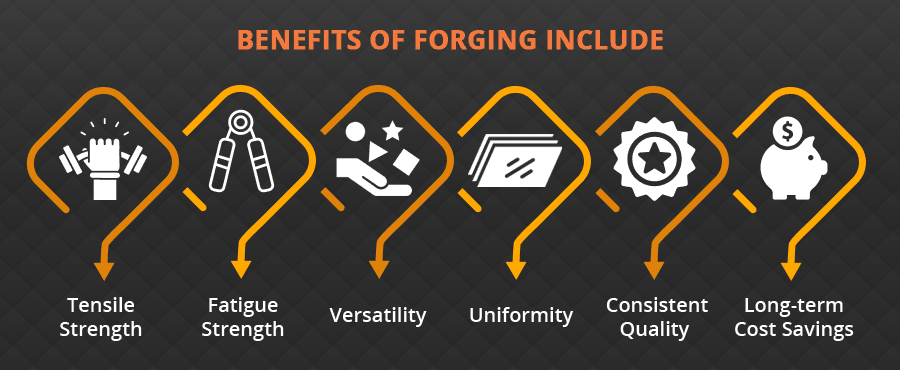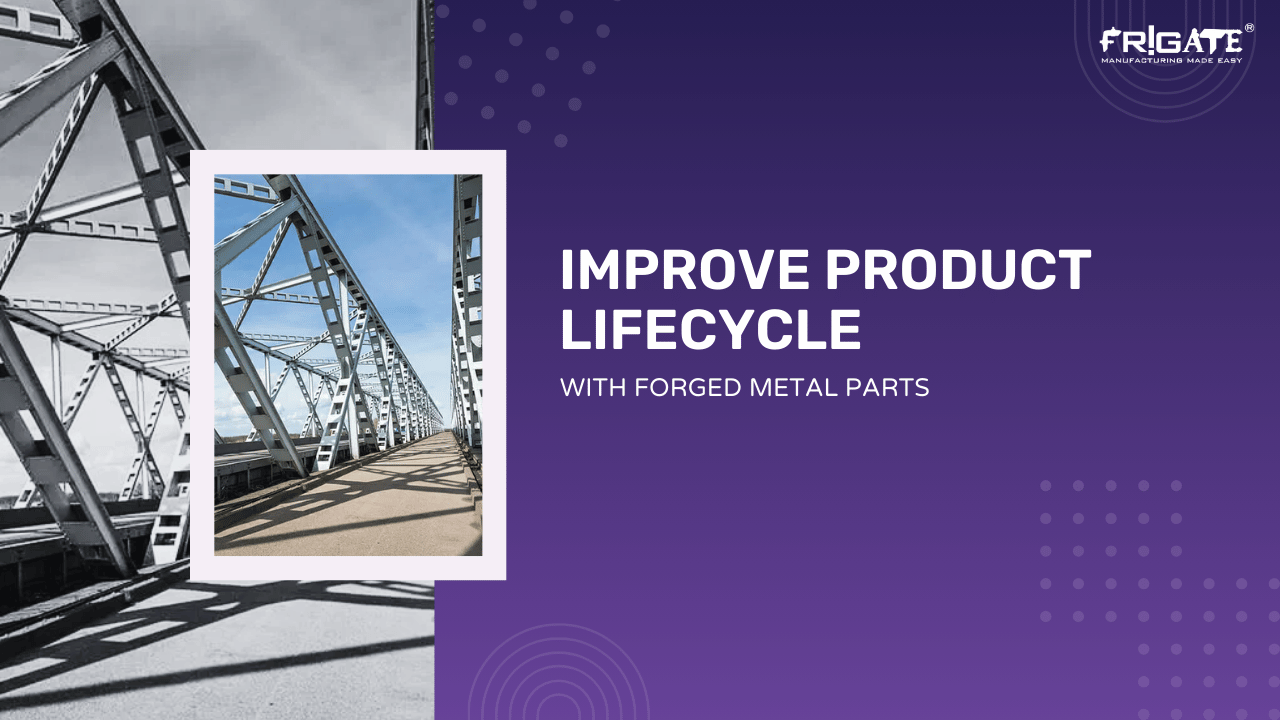The Power of Forging – Building Metal Parts to Last
In the world of metal components, where strength and longevity are at the forefront, forging stands out as a champion. This time-tested process, far from being relegated to the realm of medieval blacksmiths, remains a crucial technique for crafting metal parts with exceptional service life. But how exactly does forging elevate the durability of these components? Let’s delve into the science behind this remarkable process.
Forged metal parts from forging have a rich history, dating back millennia to the earliest civilizations. Back then, blacksmiths used hammers and anvils to manipulate red-hot metal, shaping it into tools and weapons. The fundamental principles remain the same today, albeit with the aid of more sophisticated machinery. At its core, forging involves shaping metal through compressive forces. This can be achieved using hammering, pressing, or rolling, all applied at specific temperatures depending on the chosen forging method.

Machined parts, while typically stronger than castings, may still have internal imperfections introduced during the machining process. Forging, on the other hand, produces a uniform and aligned grain structure, creating a stronger and more predictable material.
A Transformation Under Pressure
At its core, forging involves shaping metal through compressive forces. This can be achieved using hammering, pressing, or rolling, all applied at specific temperatures depending on the chosen forging method. The key here is the grain structure of the metal. Imagine the metal as a mass of tiny crystals, and forging manipulates these grains, aligning and compacting them in the desired direction. This refined grain structure is the foundation for the superior properties of forged metal parts.
Forged Metal Parts and its Advantages
The magic of forging lies in its multifaceted impact on the metal’s properties. Here are some of the key benefits that contribute to the extended service life of forged metal parts-
- Enhanced Strength- Forging strengthens the metal by eliminating internal weaknesses. The aligned grain structure improves the metal’s ability to resist deformation under stress, making it significantly stronger than its cast or machined counterparts. This translates to components that can handle heavier loads and endure harsher operating environments without succumbing to bending, breaking, or warping.
- Improved Fatigue Strength- Forged metal parts are often subjected to repeated stresses, a phenomenon known as fatigue. Forged parts excel in this area. The refined grain structure and the absence of internal voids significantly enhance fatigue strength, allowing them to withstand millions of stress cycles without succumbing to failure. This is particularly important for components in applications like engines, axles, and gears, which are constantly subjected to fluctuating stresses.
- Superior Impact Resistance- Life can be full of bumps and jolts, and metal parts are no exception. Forging imbues the metal with exceptional impact resistance. The aligned grain structure effectively absorbs and distributes the force of an impact, preventing cracks and fractures. This is crucial for components that may experience sudden impacts, such as those used in construction equipment, heavy machinery, and tools.
- Reduced Stress Concentration- Sharp corners and abrupt changes in geometry can act as stress concentrators, making a part more susceptible to failure. The forging process allows for smoother transitions and eliminates these stress raisers, further extending the service life of the forged component. This optimization of part geometry is a key advantage of forging, as it ensures that the material is loaded uniformly and prevents premature failure due to localized stresses.

Forging Across Diverse Applications
The exceptional properties and unmatched versatility of forged parts make them the ideal choice for a multitude of industries. Here’s a deeper dive into how forging shines in some key sectors-
- Aerospace- As mentioned earlier, the relentless pursuit of lightweight strength in aerospace applications makes forging an indispensable ally. Landing gear, engine components, and airframes all benefit from the superior strength-to-weight ratio and fatigue resistance offered by forged metal parts. These forged components can handle the immense stresses of flight and ensure the structural integrity of the aircraft.
- Automotive- The automotive industry heavily relies on forging to create critical components that can withstand the demanding environment under the hood. Crankshafts, connecting rods, and suspension parts all see significant advantages when forged. The enhanced strength and impact resistance of these forged metal parts translate to a smoother, safer, and more durable driving experience.
- Oil and Gas- The unforgiving depths of the earth demand equipment that can handle extreme pressures and temperatures. Forged metal parts, with their exceptional durability and strength, are perfectly suited to surviving these harsh conditions. From drill bits and wellhead components to valves and piping systems, forging plays a vital role in ensuring the safe and efficient extraction of oil and gas.
- Construction- From the towering skyscrapers that grace our skylines to the robust bridges that connect our cities, the construction industry relies heavily on the strength and longevity of forged components. Beams, columns, and other structural elements benefit from the superior load-bearing capacity offered by forging, ensuring the safety and stability of these structures.
- Military and Defense- Military equipment operates in some of the most demanding environments imaginable. Forged parts play a crucial role in weapon systems, vehicles, and other defense applications. Their exceptional strength and resilience ensure that these critical components can withstand the rigors of combat and protect those who rely on them.
The Frigate Advantage – Your Trusted Partner in Forging
At Frigate, we’re more than just a forging company; we’re your dedicated partner in crafting exceptional metal parts. We understand the transformative power of forging and its ability to elevate your products to new heights of performance and durability. Our team of experts possesses a deep understanding of the forging process, from material selection and design optimization to the intricacies of tooling and production. We leverage this expertise to collaborate closely with you, translating your design vision into a reality that surpasses expectations.
But our commitment extends beyond simply producing exceptional forged parts. We believe in building strong, collaborative relationships with our clients. Our team of forging specialists provides you with the support and guidance you need throughout the entire project lifecycle. From initial design consultations to prototyping and final production, we’ll be by your side every step of the way, ensuring a seamless and successful experience.
So, if you’re looking for a forging partner who is invested in your success and committed to exceeding expectations, look no further than Frigate. Contact us today and let’s forge a path towards creating metal parts that revolutionize your products.




